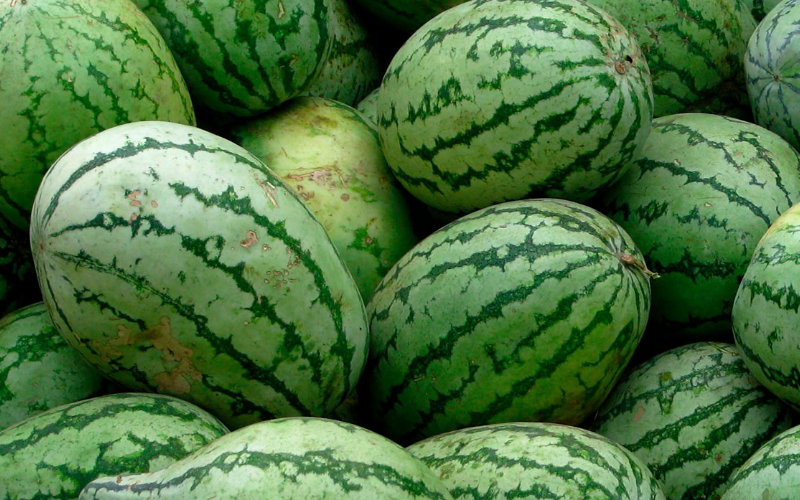Moroccan Province Bans Watermelon Farming Amid Water Scarcity Crisis

The drying up of water sources and the drop in the water table are pushing the governor of the province of Tinghir to ban the cultivation of watermelons on its territory. This fruit consumes a lot of water.
No red and yellow watermelon cultivation throughout the 2023-2024 agricultural season. This is what the governor of the province of Tinghir has decided, issuing a decree to this effect. The objective is to rationalize the use of water resources due to the scarcity of rainfall. This decree is based on the provisions of ministerial decision no. 1323.22, jointly signed by the Minister of Agriculture, Mohamed Sadiki, the Minister of the Interior, Abdelouafi Laftit, and the Delegate Minister in charge of the Budget, Fouzi Lekjaa, setting the terms for granting the subsidy for hydro-agricultural development in agricultural holdings, reports the Arabic-language daily Al Ahdath Al Maghribia. Article 6 specifies that the most water-intensive crops, concerning localized irrigation, are excluded.
The decree of the governor of Tinghir is also based on a joint decision, formalized on September 22, 2022 by a signature between designated officials at the Ministry of Agriculture and the Delegate Ministry in charge of the Budget concerning the cultivation of avocado trees, red watermelons as well as new citrus plantings which are no longer eligible for a localized irrigation subsidy.
In Tata, the inhabitants had expressed their opposition to the cultivation of watermelon because it dries up the water tables and puts them in difficulty during periods of drought and water crisis. A prefectural decree had then been taken to prohibit this cultivation, but also all expansion or deepening work on already authorized wells, the use of crops that consume a lot of water, the overexploitation of groundwater, the suspension of the granting of new authorizations for the drilling of wells, as well as the fight against the transfer of water from existing illegal hollows or wells. But lobbies are putting pressure on local authorities to resume cultivation.
Related Articles
-

Moroccan Restaurant Scandal: Cockroach in Tagine Sparks Food Safety Outrage
13 September 2025
-

Moroccan Banks Under Fire: Soaring Fees and Empty ATMs Spark Consumer Outrage
12 September 2025
-

Moroccan Coast Crackdown: Massive Demolition of Illegal Villas Signals End of Urban Anarchy
12 September 2025
-

Urban Planning Scandal Rocks Meknes: Interior Ministry Launches Probe into Royal Residence Violations
12 September 2025
-

Gold Prices Soar in Morocco: Wedding Dreams and Savings at Risk
12 September 2025